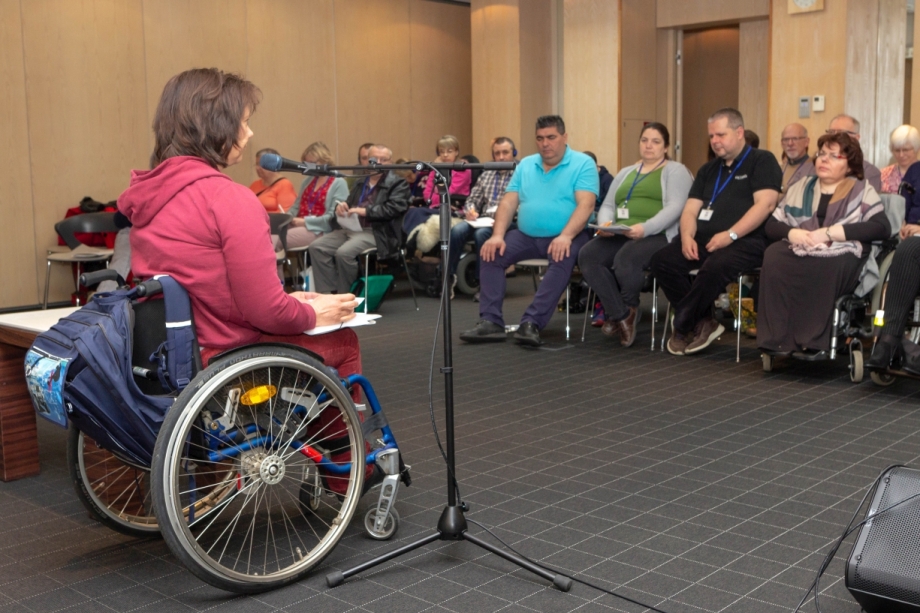
In Europe, 75 to 100 million people have a disability. This is more than 10% of the population. They have received legal recognition. Since the start of this century, several Christian organizations who work with people with disabilities have formed a network.
The needs and possibilities of people with a disability are diverse. In the more wealthy western countries, the authorities have built up practical support. In Eastern Europe, the most elementary necessities are often lacking. For instance, not everyone who needs it has a wheelchair. Slowly but surely accessibility is being worked on. However, in every case, personal loneliness is the biggest problem.
It is in the message of the Gospel that many find comfort. Nevertheless, how will they learn about this message if it is not shared with them? How will they get to know the churches if still very little is done to make them welcome? How will these people with a disability witness about the many blessings they have received through Jesus Christ if they are given little or no opportunity to speak in public? How can we involve them?
VISION
The EDN desires to see a dynamic disability ministry in every European country, resulting in increasing numbers of people with disabilities finding faith in Christ and being fully involved in churches which are actively inclusive.
MISSION
The EDN is a European network that:
- promotes and supports evangelistic ministry among and by people with disabilities in Europe
- provides a united voice for disability ministry in Europe
- affords support, encouragement and fellowship to its partners
OBJECTIVES
The Network seeks to:
- provide a biblical understanding of disability
- represent European Disability ministry at European wide events
- provide training in:
- Communicating the vision with churches, pastors, donors
- Training disability ministry workers
- Counselling
- Leadership
- Organisation
- facilitate the exchange and sharing of resources
- stimulate prayer and practical support for its partners and people with disabilities through regular communication

